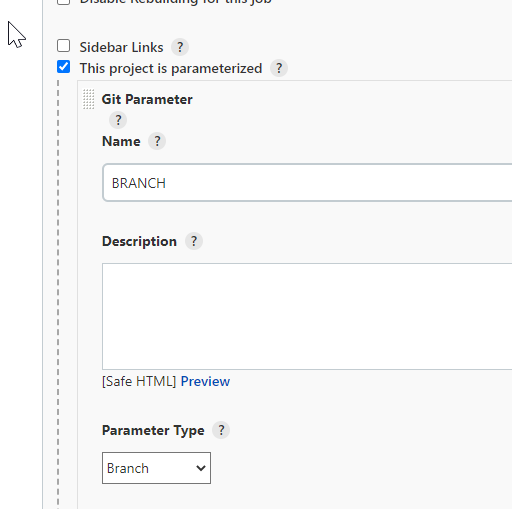-
Type:
Bug
-
Resolution: Unresolved
-
Priority:
Minor
-
Component/s: git-parameter-plugin, jobconfighistory-plugin
-
Environment:Jenkins 2.332.1; Job Configuration History Version1119.v509e1017356b_; Git Parameter 0.9.15
Git-parameter plugin set with BRANCH as a name causes Job Configuration History plugin to write non-informative entries regarding UUID change. This lead to a cluttered history in jobconfighistory that takes the space on a server.
Task settings causing the issue:

Steps to reproduce:
- create at least 2 branches in your git repo
- set any pipeline with Git parameter Name = BRANCH and Branches to build > Branch Specifier (blank for 'any') specifying one of 2 branches
- Click Build with Parameters, selecting the branch you specified
- Now change task configuration in Configure menu and change the branch name in Branches to build to another branch of your repository
- Click Build with Parameters, selecting the branch you specified this time
- Open Job Configuration History
Actual result: there are 2 entries appeared with the only change: different UUIDs
Impact: when the task is run a lot of times during the day, the history in jobconfighistory is cluttered and is not informative, taking up the disk space on a server and can potentially lead to the lack of inodes on a server.
What is expected: need to get rid of entries in the Job Config History related to UUID change from the Git parameter plugin. Since the task is automatically executed several times a day, need to exclude such logging to save the space and improve readability in the Job Config History.
There is similar issue already reported, but for another plugin:
https://issues.jenkins.io/browse/JENKINS-64759
- relates to
-
JENKINS-64759 list-git-branches-parameter generate a config.xml change on every run
-
- Open
-
